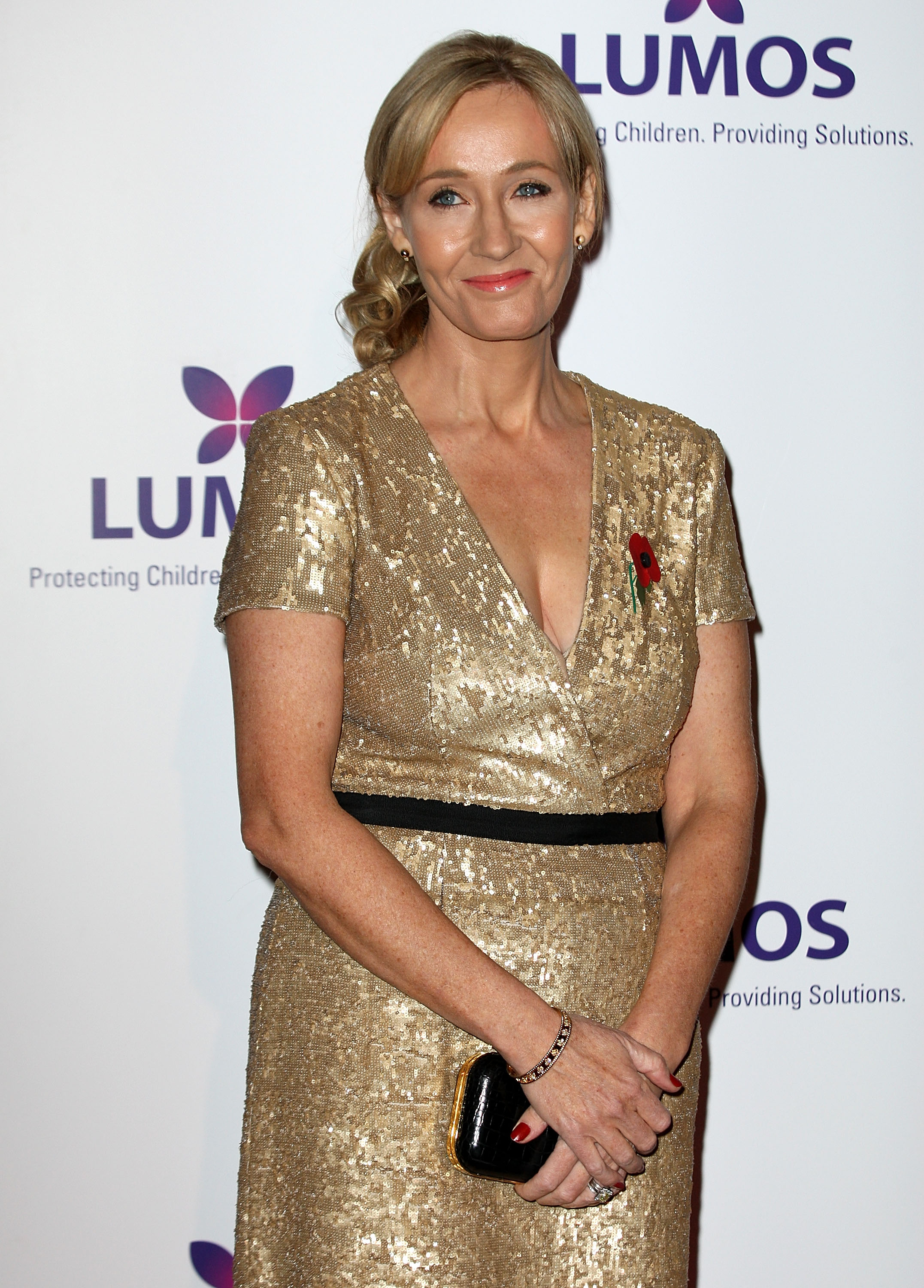
When she learned that 15-year old shooting survivor Cassidy Stay quoted Harry Potter in the eulogy for her family after they were horrifically murdered in front of her, J.K. Rowling did a really nice thing.
The author sent the teenager a care package that reportedly included a wand, an acceptance letter to Hogwarts complete with a school supply list, and a personalized letter from “Dumbledore” hand-written in purple ink, according to a Facebook page set up by Stay’s supporters.
It’s one more example of why J.K. Rowling is the real deal, and we should all try to be more like her. She’s a better role model than Beyonce, Jennifer Lawrence, or any of the other celebrities we obsessively look to as examples for how to be. Here’s why: She’s not someone to emulate for any of the usual reasons. It’s not about upending notions about sexiness, or proving a point about “power women,” or getting really successful at a young age. She’s not begging us to follow her, which is exactly why we should.
Many of the women we consider role models are famous for their sex appeal, because part of their cultural usefulness is providing sexual validation to us normal people. The attractiveness factor is deeply embedded in our ideas about “empowerment,” and the implication for a lot of these celebrations of women is, “Look! You can be sexy and powerful even if you’re (insert nontraditional thing.)” For example, Jennifer Lawrence is considered sexy “even though” she’s disheveled and outspoken, Laverne Cox is sexy even though she’s transgender, Adele is sexy even though she’s bigger than other rail-thin music stars, etc., etc. So even when we’re celebrating a diverse set of role models for being sexy in spite of oppressive cultural expectations, we’re celebrating their sexiness nonetheless.
Of course, there are many influential women who are more concerned with power than sex: Sheryl Sandberg, Hillary Clinton, and Gloria Steinem, to name just a few. These are women who have become role models because of their fight for equality, and their identities have become wrapped up in high-profile personal brands attached to worthy causes (like Lean In). But these women are as famous as symbols or brands as they are for their actual contributions to their field. Just think: we know way more about Sheryl Sandberg as a feminist icon than we do about her work at Facebook.
But J.K. Rowling is unusual in that her work is more famous than she is, and her contribution to the world has almost nothing to do with her own identity. Harry Potter is the figure that captured the imagination of millions of children, not J.K. Rowling. She’s an icon-maker, not an icon.
It’s not really about her.
Besides, there’s something especially inspirational about Rowling’s personal story. She was a single mom on welfare at the time she wrote the first Harry Potter book, desperately trying to make ends meet to support her daughter. Obviously she’s not the only powerful woman to go through some serious hardship– in fact, most good role models have overcome a good deal of adversity, that’s part of what makes them so admirable.
But Rowling’s time as a single mother also meant Harry Potter wasn’t published until she was 32, much older than the “wunderkind” model of success we see in women like Taylor Swift, Lena Dunham, and Malala Yousafzai. While all of these women have become role models for the incredible work they to in music, television, and global women’s rights, part of their appeal is how they got so successful so young (Swift is 24, Dunham is 28, Malala is just 17.) We admire their work, but we also admire their precociousness and sheer unusualness in doing it. J.K. Rowling got her start a lot later than most successful women, which meant the story of her accomplishments wasn’t enhanced by her youthfulness.
So if J.K. Rowling doesn’t represent sex, power, or youth, then what does she represent? She is the kind of role model we get when we strip away all the other things we’ve been taught to admire in women and instead focus on the qualities we should actually idolize: work and kindness. J.K. Rowling writes excellent books, and that is all. She occasionally makes kind gestures to those in need, and her stories have helped millions of people through difficult times. She is not upending expectations about beauty, or leading movements for political change, nor did she achieve her dreams younger than other people achieved theirs. She’s not snazzy– she’s just good.
In fact, Rowling is so uninterested in her personal brand that she’s even been writing under a pseudonym, Robert Galbraith, an experience she called “liberating.” She’s the role model who didn’t ask to be one, which kind of reminds us of a certain other reluctant hero, with a lightning scar on his forehead.
More Must-Reads from TIME
- Why Trump’s Message Worked on Latino Men
- What Trump’s Win Could Mean for Housing
- The 100 Must-Read Books of 2024
- Sleep Doctors Share the 1 Tip That’s Changed Their Lives
- Column: Let’s Bring Back Romance
- What It’s Like to Have Long COVID As a Kid
- FX’s Say Nothing Is the Must-Watch Political Thriller of 2024
- Merle Bombardieri Is Helping People Make the Baby Decision
Write to Charlotte Alter at charlotte.alter@time.com